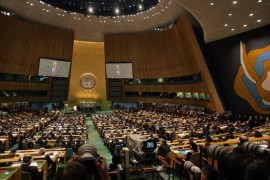
A series of programmes on the BBC looks at democracy in practice, and includes an opinion poll conducted in 15 countries around the world. (Read the survey here.)
Naturally, anything regarding democracy on the BBC attracts the interest of this blog. In particular, I was wondering how the survey would deal with the idea of democracy at the international level. Would it be rejected? Would it simply be ignored? In fact, there was a question in the survey on the subject, asking “How likely would you be to support a Global Parliament, where votes are based on country population sizes, and the global parliament is able to make binding policies?”
The possible answers were as follows:
Very likely – it is a good idea
Quite likely – but with reservations
Neither likely nor unlikely
Quite unlikely – but it might work
Very unlikely – it is a bad idea
Don’t know/Refused (Do not prompt)
Now, I am as much committed to the idea of global democracy as anybody, and even my answer would have been only “Quite likely – but with reservations”. Let me explain why.
There are two reasons why the description of a proposed global parliament is incomplete: its powers, and its composition.
First, the idea of “binding policies” needs to be qualified by the idea of subsidiarity. Whatever the powers of the global institutions, they should be limited to policy areas with which lower levels of government cannot deal adequately on their own. The limitation of the emission of greenhouse gases in order to fight climate change is a perfect example of the kind of issue that needs to be dealt with at global level: no country can on its own follow policies that will be effective. Quite often, the fact that no single country can fight climate change is used as an argument against groups of countries fighting climate change: of course, that is nonsense but it depends on how those countries cooperate together. This is the second reason for my reservations.
Any global parliamentary chamber, representing the people, needs to be accompanied by a chamber that represents the states. The best way to do this is to aim for equal representation of citizens in one chamber and an equal representation of states in the other. The US system works on this basis; the European Union has something similar. On this view, it doesn’t make sense to talk in terms of a global parliament with seats allocated according to population without also mentioning the one vote per country chamber, too, and the need to get a majority in each chamber. So, two reservations but nevertheless a good idea.
